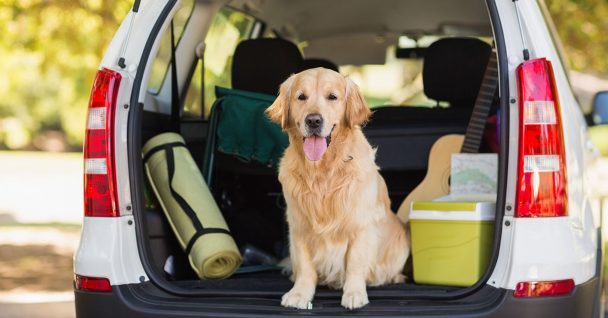Who doesn’t love a leisurely walk with a happy, calm dog wagging its tail next to you? However, if your furry friend is reactive, pulling at the leash, growling, or showing signs of aggression while being walked, it might turn what is supposed to be a delightful stroll into a stressful issue. Fret not! Some of the best dog trainers in Philadelphia are working tirelessly to transform reactive dogs into leash-friendly companions.
This process of transforming your four-legged companion is no small task and often requires professional assistance. One such professional who has been getting rave reviews for his leash training methods is Salvatore Devivo.
Philadelphia Dog Trainers Expertise
Dog trainers in Philadelphia are renowned for their diverse skills to assist owners and their pets. Their expertise extends from basic obedience training to more specialized fields such as agility training, behavior modification, and most importantly, leash training for reactive dogs. Armed with certifications from reputable organizations like CCPDT (Certification Council for Professional Dog Trainers), they follow science-based, cruelty-free techniques.
Their focus is not just limited to making dogs leash-friendly but also enabling owners to understand their pets better. Top-notch trainers will assess your dog’s temperament, its stimuli and triggers. They further educate the pet parents on potential reasons causing such reactive behavior and providing handy tips for managing these situations.
What’s truly unique about Philly dog trainers is their dedication and commitment to enhancing the bond between human and pet by promoting mutual understanding. This empathetic approach helps ensure that even the most challenging dog behaviors can be corrected over time.
In every step of transforming your furry friend into a good canine citizen, Philadelphia’s highly skilled dog trainers stand by your side. They provide all the knowledge, tools, and techniques to ensure your furry friend becomes a joy to walk with.
Approaches to Reactive Dog Training
Professional trainers follow various approaches when dealing with reactive dogs. One of these methods is known as counter-conditioning – it’s like reprogramming a dog’s emotional responses towards stimuli that caused its negative reaction in the first place.
The other commonly employed strategy is desensitization. It aims to lessen the dog’s reaction by gradually introducing it to the perceived threat until the pup doesn’t see it as threatening anymore.
Besides these procedures, positive reinforcement plays a significant role in training reactive dogs. Trainers reward dogs for exhibiting appropriate behavior when exposed to an external trigger instead of exhibiting aggressive tendencies.
Lastly, teaching impulse control can be quite beneficial since it promotes calmness rather than over-reactivity. The goal here is to teach your pet patience and self-control through exercises and practices.
Leash Training Techniques
Many expert dog trainers in Philadelphia emphasize teaching base behaviors. These behaviors include responding to names, general obedience commands such as “sit,” “stay,” or “heel,” as well as walking calmly on the leash without pulling.
A good trainer would also advise switching up routes during walks. This adds variety and reduces the chance of forming specific reactivity patterns. Introducing varying lengths of leads can further contribute to mastery of leash behaviors.
An often neglected technique is reading a dog’s body language correctly. Having a firm grip on canine communication helps owners in identifying signs of discomfort or anxiety early on before they escalate into full-blown reactions.
Dog trainers recommend standard leashes over retractable ones since they offer better control in unpredictable situations. Similarly, head collars or front-clip harnesses can also be used as they give better control over dogs compared to back-clip harnesses.
Puppy to Adult Leash Transition
Puppies are born explorers that learn very quickly and ideally, leash training should be started at puppyhood. Regular practice with different types of interactive games can help young puppies grow into well-trained dogs with a positive relationship with the leash and their humans.
As the pups grow, the training needs to be adapted. The techniques and cues they learned during their younger months serve as a base for more complex training programs later on.
A professional dog trainer would follow a structured strategy which involves gradual increase in the training difficulties, along with proper timing and consistency. This approach ensures seamless transition from puppy leash training to adult leash practices.
Despite there being several guides and tutorials available online, hands-on professional guidance is often invaluable when dealing with reactive dogs. This helps integrate the lessons properly during crucial early growth phases.
Behaviour Modification in Reactive Dogs
Behavior modification in reactive dogs forms a major part of leash training protocols in Philadelphia. Trainers curate personalized programs that cater specifically to your pet’s triggers, individual temperament and response patterns.
Often socializing sessions are included wherein dogs are gradually introduced to new environments, animals or humans. Such settings help broaden their experiences and normalize interactions that previously might have led to reactive behavior.
Redirecting negative behavior into a positive one is another major aspect of behavior modification. Call-and-reward practices wherein owners swiftly distract the pet’s attention from a potential trigger thereby avoiding any negative conduct works wonders to this end.
Positive Reinforcement in Training
Philadelphia dog trainers emphasize heavily on the use of positive reinforcement. It aims at increasing desirable behaviors by rewarding dogs with treats, praise, or play whenever they do something right instead of punishing them for wrong behaviors. Here are several ways trainers use positive reinforcement:
- Use enticing high-value treats during training sessions. The anticipation of rewards makes learning enjoyable for your canine friend.
- Praise forms a huge component of positive reinforcement. Dogs are social creatures who derive immense happiness from their owner’s appreciation. A simple “good boy/girl” can work wonders.
- Physical affection such as a belly rub or a gentle pat on the head shows your pet that you appreciate its actions, strengthening your bond further.
Combining cues with positive reinforcement helps in training dogs better. For instance, saying “heel” and then rewarding the dog as soon as it achieves the desired action makes it correlate the command with the behavior more effectively.
Training Success Stories in Philadelphia
Many pet parents in Philadelphia have had their lives turned around thanks to the work of professional dog trainers. One such memorable success story involves an extremely reactive Great Dane called Bella. Some dogs have been banned due to aggressive behavior, but thankfully this is unusual. Initially, Bella would become very aggressive whenever she encountered other dogs during walks.
After several weeks of consistent positive reinforcement training and behavior modification techniques by a Philadelphia trainer, Bella now enjoys peaceful walks with her pet parent.
Another captivating tale is of Max, a small rescue pooch who was terrified of strangers and would react by biting whenever someone approached him. With the help of a local trainer, his owners were able to slowly introduce him to new people using desensitization and counterconditioning techniques. Today, Max is friendly around new people and even loves cuddling up with guests at home.
Each transformative story serves as a testament to the capability and caliber of Philadelphia’s dog trainers. Their knowledge, patience, skill set have turned even the most reactive dogs into calm, leash-friendly pets.
The Final Word
Transforming reactive dogs into leash-friendly companions might seem like a daunting task, but with the seasoned professionals in Philadelphia’s dog training scene and their effective strategies, it is utterly feasible.
By shedding light on canine communication and behavior patterns and integrating humane teaching methods and positive reinforcement along with customizing training routines for each pet, they continually inspire hope among pet parents. Remember, training a reactive dog is a journey, and each step taken contributes to your pet’s overall behavior and well-being.

